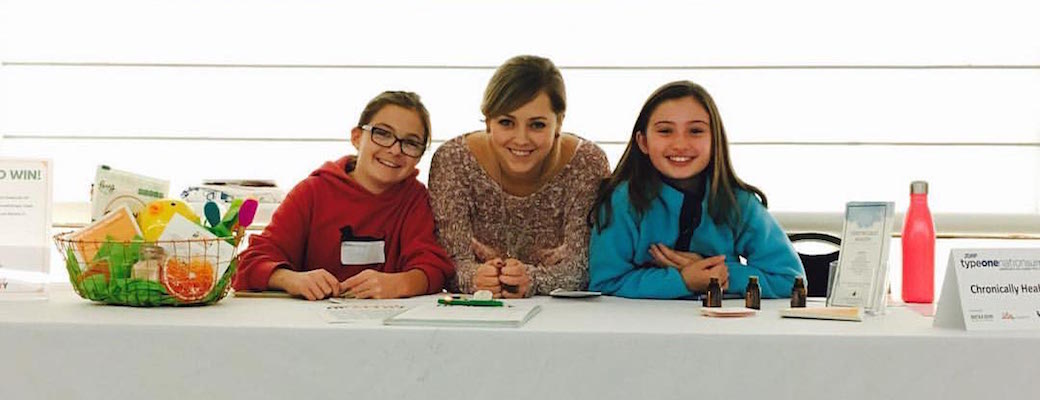From Table to Chair
Every single person with type 1 diabetes I have worked with over the years has, at one point or another, gone through that period of “I’m not dealing with this.” It’s scary, it gives our caregivers unbelievable amounts of anxiety, it causes permanent damage … but it is something we all do. I fell into this trap for a few years during high school. Eventually, it just kind of clicked for me. This is my body. This is my life. I wasn’t happy and I wasn’t truly living. One day I woke up and decided to take back control of my disease. I’ve overcome the disease by learning to love and respect myself enough to face diabetes head on. I am now a certified health coach and holistic nutritionist focusing on invisible illnesses in children and teens. Just last month, my father was diagnosed with type 1 diabetes. Not only was this a major shock, this has ignited some pretty deep reflection about my own journey.
We’ve all sat on that rubbery, paper covered table in the doctor’s office. You’re up higher than everyone else, at the level where you can easily be poked, prodded, examined and tested. Most of us usually have someone in the other chair in the room. For me, it’s been my mom. In recent years my boyfriend has taken my mom’s place, and occasionally we even have to pull in an extra chair. (I feel so unbelievably lucky that sometimes there isn’t enough room for my advocates and caregivers in that tiny room.)
It is really hard to be the one on the table. You’re the one feeling the physical pain and the fear. What many of us on that table never realize, is that the person in the chair is feeling some pretty intense pain too. Our caregivers may not feel our physical pain, but you can bet they are feeling it in ways that are just as, if not more, powerful.
As a child and even a teen, I never fully grasped what it felt like to be in that chair. Recently, I switched places with someone I care about. Now I’m the one in the chair. I’m the one worrying, watching someone sit on the table and be told that their life is going to drastically change.
If you have a chronic illness, then you’ve been in a position where someone is telling you how to handle something, reminding you of a medication, telling you not to eat something, etc. If you’re a parent of someone with a chronic illness, then you’ve been on the other side of this.
“Test your blood sugar.”
“Don’t forget your medication.”
These questions sometimes follow an angry, ugly battle.
Remember this: a chronic illness is a family affair. Do not be selfish enough to think that your chronic illness is only affecting you, as I did this for years. I hurt people. When people remind you or ask you about things relating to your disease, they are doing it out of fear, out of care and from a place of love. Nothing more, nothing less. Adversely, if you are a caregiver, please realize that sometimes when we skip medications or eat something that we know will make us feel bad, we are trying, just for a moment, to feel like we aren’t “sick.” Sometimes we need that moment of carelessness.
Bottom line, this affects all of us. Next time a battle starts, take a step back and try to see it through the other persons eyes.
Learn more about Emily’s work on her website: The Chronically Healthy, where this was originally published.
Read Caregiver Burnout by Mark Heyman, PhD, CDE





